
The Enchanting Shores of Donegal Bay
Donegal Bay, located in the northwest of Ireland, is a stunning blend of natural beauty and rich cultural heritage. The bay stretches majestically along the Atlantic coast, offering visitors breathtaking views of rugged cliffs, golden sandy beaches, and rolling green hills. The region is known for its unspoiled landscapes, making it a paradise for nature lovers and outdoor enthusiasts. The charming town of Donegal, situated at the head of the bay, is a must-visit. With its historic Donegal Castle and vibrant local culture, the town provides a perfect starting point for exploring the bay. Visitors can enjoy traditional Irish music in cozy pubs, savor delicious local seafood, and learn about the area's fascinating history. Donegal Bay is also a haven for adventure seekers. The bay's waters are ideal for surfing, kayaking, and fishing. Hiking trails abound, offering stunning coastal views and the chance to spot local wildlife. The nearby Slieve League Cliffs, some of the highest sea cliffs in Europe, provide a dramatic backdrop and unforgettable hiking experiences.
Local tips in Donegal Bay
- Visit in the summer for the best weather and longer daylight hours.
- Pack sturdy hiking boots to explore the numerous trails around the bay.
- Try the local seafood, especially the fresh oysters and fish dishes.
- Carry a raincoat and layers, as the weather can change quickly.
- Rent a car to fully explore the scenic routes and hidden gems around the bay.
The Enchanting Shores of Donegal Bay
Donegal Bay, located in the northwest of Ireland, is a stunning blend of natural beauty and rich cultural heritage. The bay stretches majestically along the Atlantic coast, offering visitors breathtaking views of rugged cliffs, golden sandy beaches, and rolling green hills. The region is known for its unspoiled landscapes, making it a paradise for nature lovers and outdoor enthusiasts. The charming town of Donegal, situated at the head of the bay, is a must-visit. With its historic Donegal Castle and vibrant local culture, the town provides a perfect starting point for exploring the bay. Visitors can enjoy traditional Irish music in cozy pubs, savor delicious local seafood, and learn about the area's fascinating history. Donegal Bay is also a haven for adventure seekers. The bay's waters are ideal for surfing, kayaking, and fishing. Hiking trails abound, offering stunning coastal views and the chance to spot local wildlife. The nearby Slieve League Cliffs, some of the highest sea cliffs in Europe, provide a dramatic backdrop and unforgettable hiking experiences.
When is the best time to go to Donegal Bay?
Iconic landmarks you can’t miss
Donegal Castle
Explore Donegal Castle, a stunning historical landmark in Ireland, and immerse yourself in the rich heritage and breathtaking landscapes of Donegal.
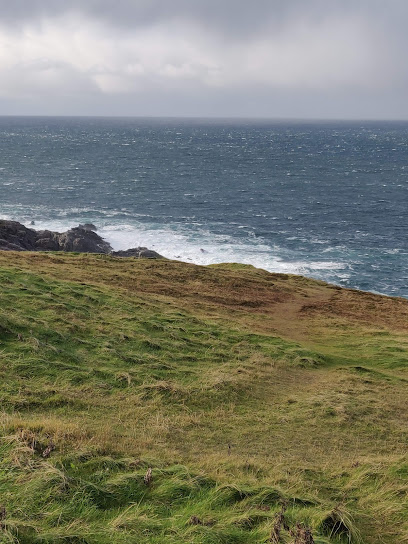
Fanad Head Lighthouse
Experience the breathtaking views and rich maritime history at Fanad Head Lighthouse, a must-visit on Ireland's stunning Wild Atlantic Way.
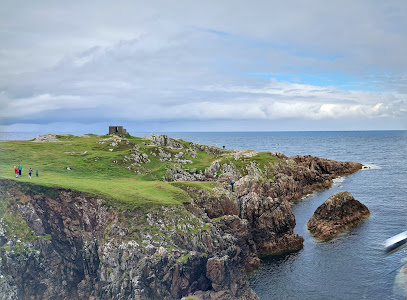
Doagh Famine Village
Explore Ireland's poignant history at Doagh Famine Village, a must-visit tourist attraction that immerses you in the tales of resilience during the Great Famine.
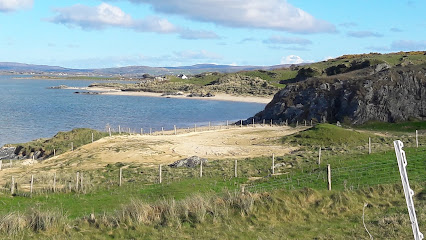
Assaranca Waterfall (Eas a' Ranca)
Experience the breathtaking beauty of Assaranca Waterfall in County Donegal, a serene escape into nature's wonderland with stunning views and tranquil surroundings.
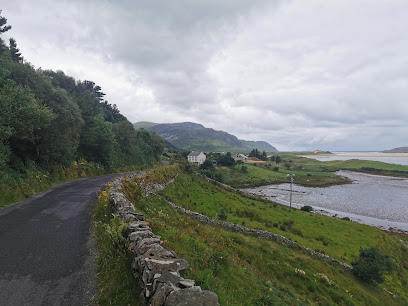
Fairy Bridges
Discover the breathtaking beauty and enchanting folklore of Fairy Bridges in Bundoran, County Donegal, a must-see coastal attraction for all travelers.
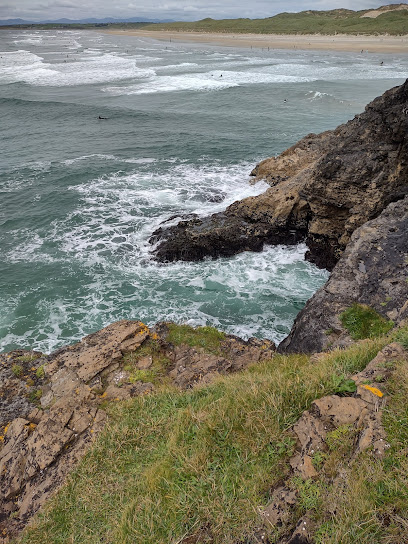
Glenveagh Castle
Explore the stunning Glenveagh Castle, a historical gem within Glenveagh National Park, surrounded by breathtaking landscapes and rich Irish heritage.
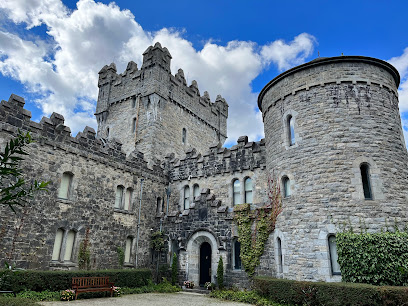
Glencolumbkille Folk Village
Explore Glencolumbkille Folk Village: A Unique Living Museum Unveiling the Rich Heritage of Ireland's Past.
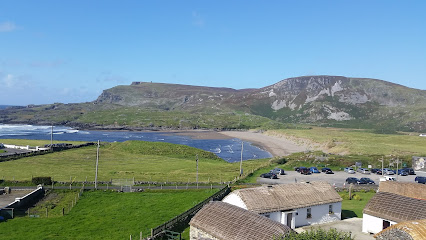
Oakfield Park
Experience the serene beauty of Oakfield Park in Donegal, a stunning garden retreat perfect for nature lovers and families seeking tranquility.
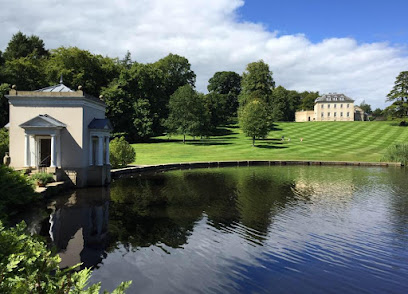
Glenevin Waterfall
Experience Ireland's natural beauty at Glenevin Waterfall in Co. Donegal, where cascading waters and lush landscapes create a serene escape for every traveler.
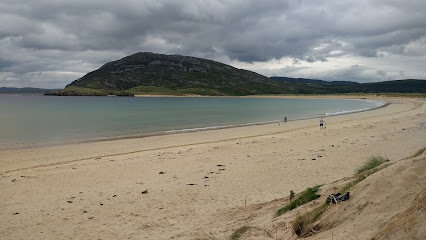
Largy Viewpoint
Experience the stunning beauty of Largy Viewpoint in County Donegal, where breathtaking panoramas of Donegal Bay await every visitor.
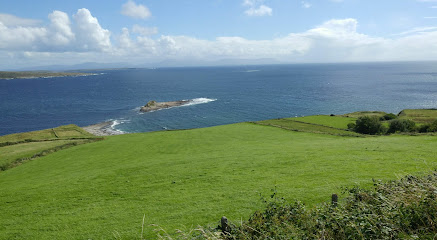
Moville Shore Path Walk, Inishowen
Explore the breathtaking Moville Shore Path Walk in Inishowen, where stunning coastal views and serene pathways await every nature lover.
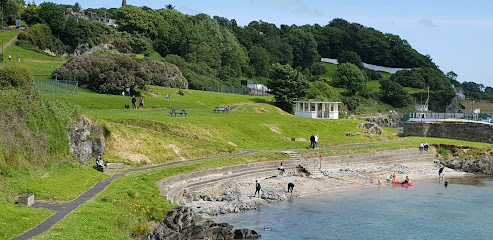
Culdaff Beach
Discover the beauty of Culdaff Beach in County Donegal, where golden sands meet the Atlantic, perfect for relaxation and adventure.
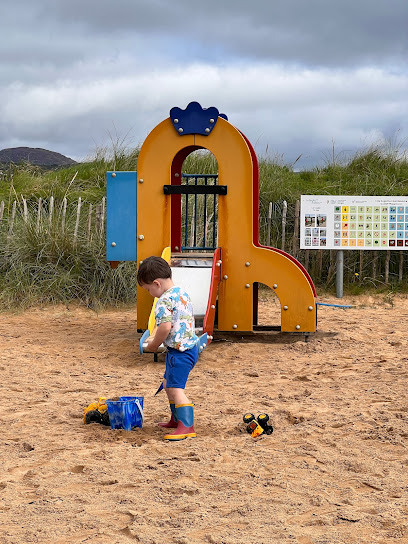
Sliabh Liag Cliff Experience & Visitor Centre
Experience the breathtaking beauty of Sliabh Liag, Ireland's highest sea cliffs, with stunning views, local crafts, and delicious coffee.
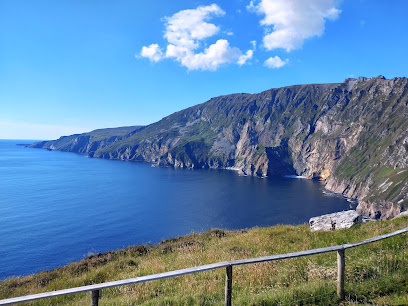
Donegal Bay Waterbus
Discover Donegal Bay's stunning vistas and rich history aboard the Donegal Bay Waterbus, a must-visit for every traveler in Ireland.
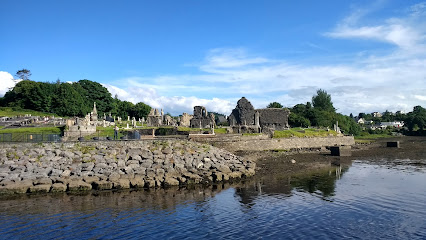
Caves of Maghera
Explore the natural beauty of the Caves of Maghera, a stunning coastal attraction in County Donegal, perfect for adventure and relaxation.
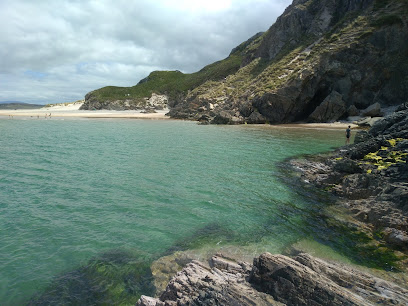
Unmissable attractions to see
Glenveagh National Park
Explore the enchanting Glenveagh National Park, where stunning landscapes, rich wildlife, and historic charm await every traveler.
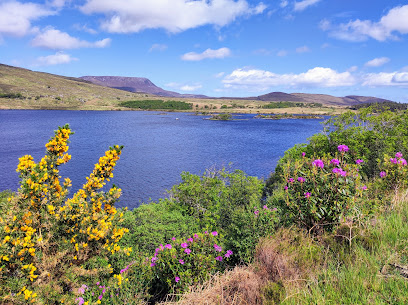
Assaranca Waterfall (Eas a' Ranca)
Discover the enchanting Assaranca Waterfall in Donegal, a breathtaking natural attraction showcasing Ireland's stunning landscapes and serene atmosphere.
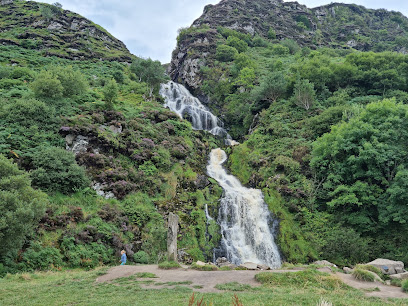
Glenveagh Castle
Explore the captivating Glenveagh Castle, a historic gem in Glenveagh National Park, surrounded by stunning landscapes and rich Irish heritage.
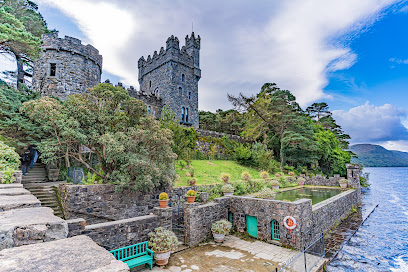
Glenevin Waterfall
Experience the breathtaking beauty of Glenevin Waterfall in Clonmany, Co. Donegal – a perfect escape into nature's serenity.
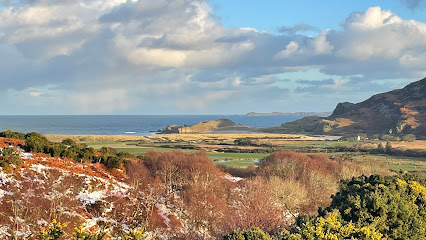
Largy Viewpoint
Discover the stunning coastal views and breathtaking landscapes at Largy Viewpoint in County Donegal, Ireland.
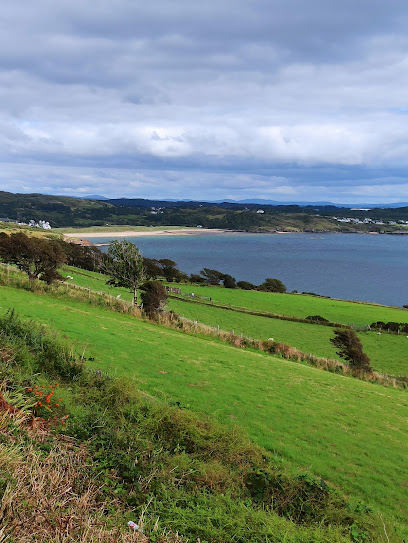
Waterworld Bundoran
Experience the excitement of Waterworld Bundoran, Ireland’s premier water park with thrilling slides, relaxing pools, and fun for all ages.
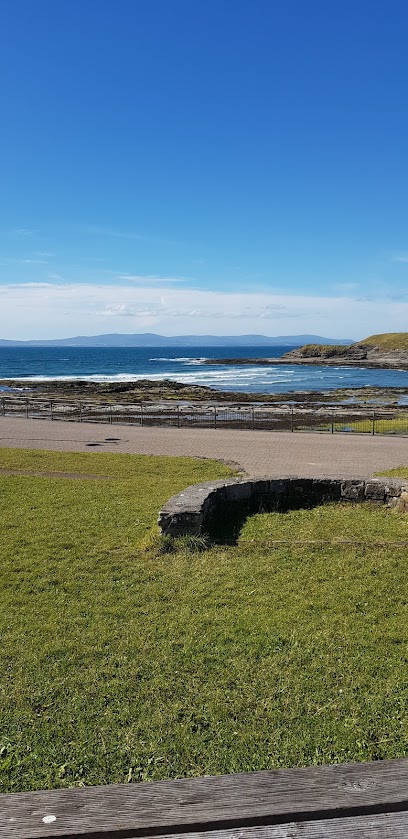
Caves of Maghera
Explore the breathtaking Caves of Maghera, a stunning natural wonder on the picturesque Donegal coastline, perfect for nature lovers and adventurers alike.
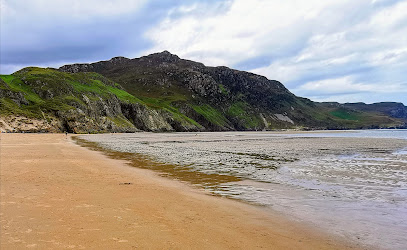
Secret Waterfall
Explore the enchanting Secret Waterfall in Co. Donegal, a stunning natural attraction surrounded by rugged cliffs and breathtaking sea views.
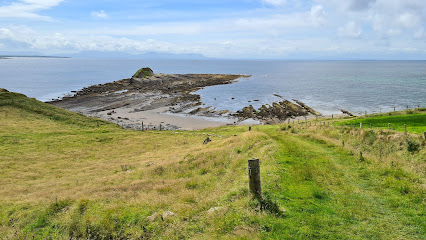
Tullan Strand
Experience the stunning natural beauty of Tullan Strand in Bundoran, Co. Donegal, where adventure and tranquility coexist along the breathtaking coastline.
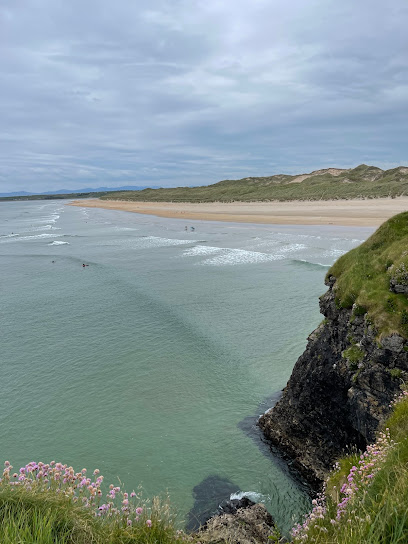
Donegal Railway Heritage Museum (Centre)
Discover the rich history of rail travel at Donegal Railway Heritage Museum, where captivating exhibits and vintage trains await in a charming setting.
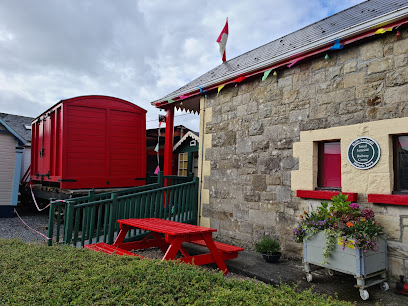
Sliabh Liag Boat Trips
Experience the breathtaking beauty of Ireland’s Sliabh Liag cliffs with unforgettable boat tours, wildlife encounters, and stunning coastal views.
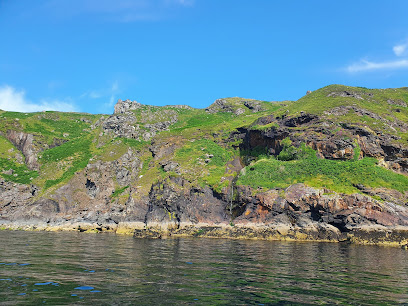
Glebe House and Gallery
Explore Glebe House and Gallery in Donegal, where art meets nature in an inspiring and tranquil setting. A perfect destination for culture enthusiasts.
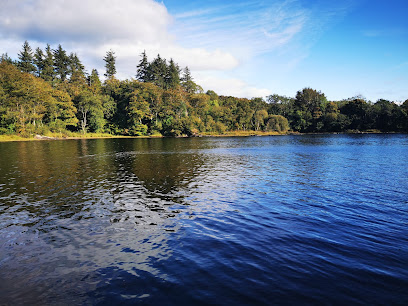
Rossnowlagh Beach
Explore the stunning Rossnowlagh Beach in County Donegal—an idyllic destination for relaxation, adventure, and breathtaking coastal views.
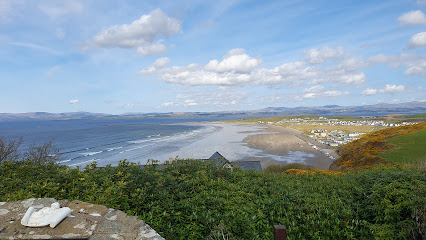
Rory Gallagher Statue
Discover the Rory Gallagher Statue in Ballyshannon, a tribute to the legendary Irish guitarist and a cultural gem for music lovers.
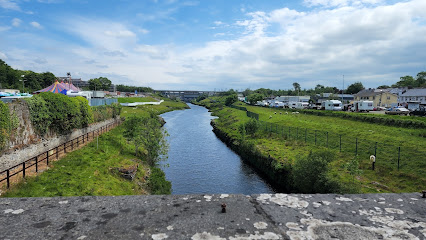
Newmills Corn & Flax Mill
Discover the rich industrial heritage of Newmills Corn & Flax Mill in Donegal, a historical museum showcasing traditional milling processes.
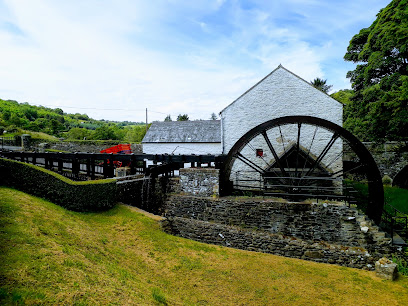
Essential places to dine
Harvey's Point
Discover luxury at Harvey's Point Hotel by Lough Eske: An idyllic retreat offering top-notch dining and breathtaking views in Donegal.
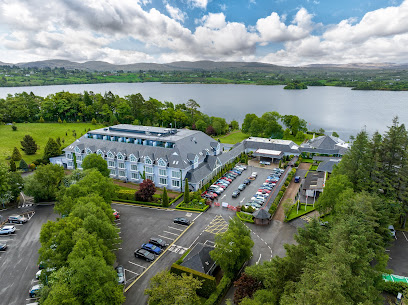
Olde Castle Seafood Bar
Experience authentic Irish seafood at Olde Castle Seafood Bar in Donegal Town – where fresh flavors meet coastal charm.
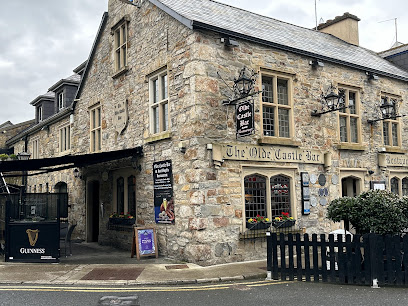
Killybegs seafood shack
Discover Killybegs Seafood Shack - where fresh local seafood meets breathtaking coastal views in County Donegal.
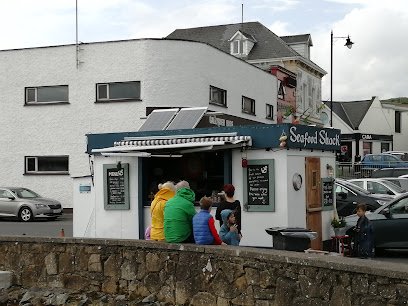
Smugglers Creek Inn
Discover the best of Irish hospitality at Smugglers Creek Inn - where delicious food meets breathtaking coastal views.
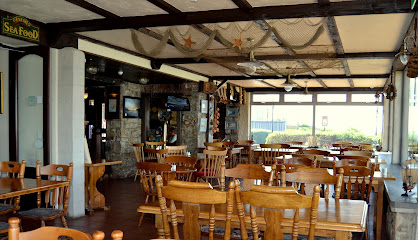
Blueberry Tea Room and Restaurant
Experience delightful homemade dishes and exquisite teas at Blueberry Tea Room in Donegal – where every meal feels like a warm embrace.
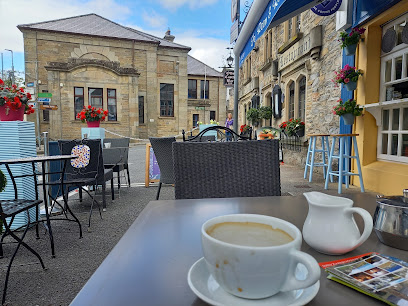
Furey’s Diner
Experience authentic Irish dining at Furey’s Diner in Donegal - where hearty meals meet local charm at affordable prices.
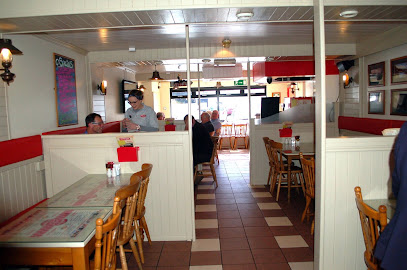
The Red Door Country House
Experience exquisite dining at The Red Door Country House in Co. Donegal, where local flavors meet stunning landscapes.
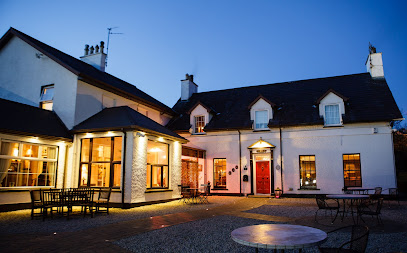
The Harbour Restaurant & Bar
Discover authentic Irish cuisine at The Harbour Restaurant & Bar in Donegal, where every meal is a celebration of local flavors and hospitality.
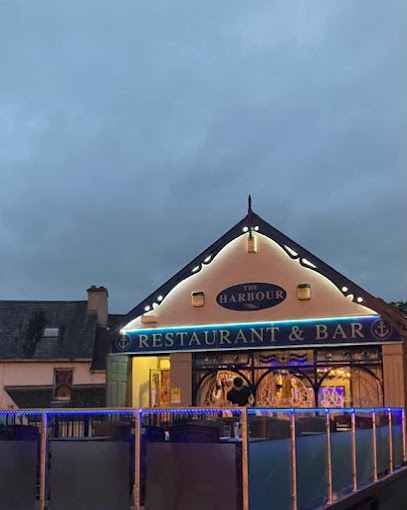
Doms Pier 1
Experience authentic Irish cuisine at Doms Pier 1 in Donegal - where delicious food meets stunning waterfront views.
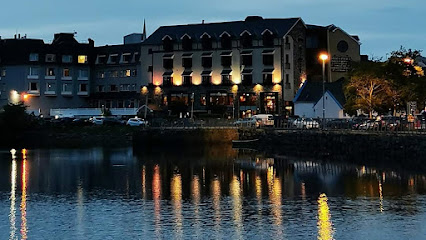
The Narrow Quarter Bistro & Coffeehouse
Experience local flavors at The Narrow Quarter Bistro & Coffeehouse in Kerrykeel - a must-visit destination for food lovers.
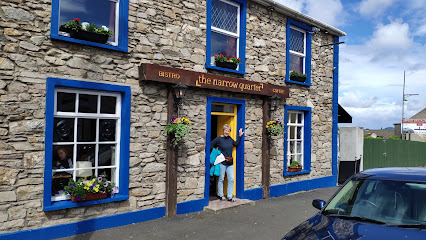
La Bella Donna Restaurant
Savor authentic Italian flavors at La Bella Donna Restaurant in Donegal, where every dish tells a delicious story.
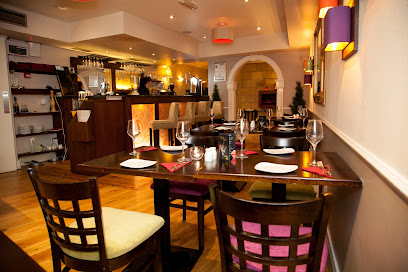
Blas
Discover Blas Bistro in Donegal – where local flavors meet stunning scenery for an unforgettable dining experience.
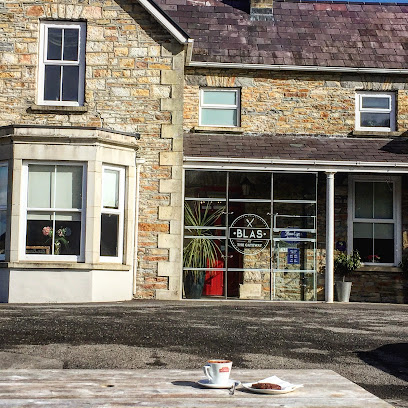
Quay West Restaurant Donegal Town
Discover culinary excellence at Quay West Restaurant in Donegal Town, where local ingredients meet breathtaking waterfront views.
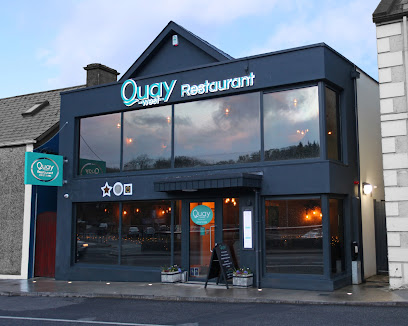
Andersons Boathouse Restaurant And Accommodation
Discover Andersons Boathouse Restaurant: Experience authentic Irish cuisine with breathtaking harbor views in Killybegs.
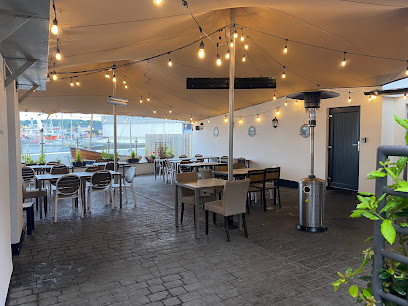
Market House Restaurant
Discover the flavors of Donegal at Market House Restaurant - where tradition meets modern cuisine in a charming setting.
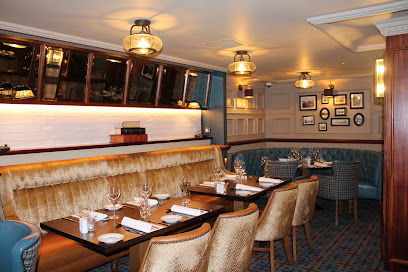
Markets, malls and hidden boutiques
Triona Donegal Tweed Center
Discover the rich heritage of Irish tweed at Triona Donegal Tweed Center, a unique blend of tradition and craftsmanship in Ardara, Co. Donegal.
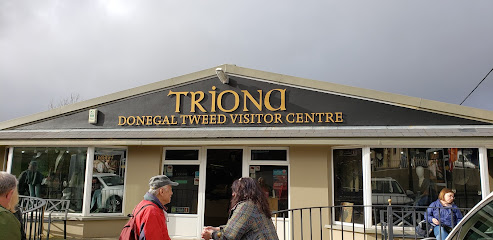
Donegal Craft Village
Discover the enchanting Donegal Craft Village, a treasure trove of handmade crafts and authentic Irish artistry in the heart of Donegal.
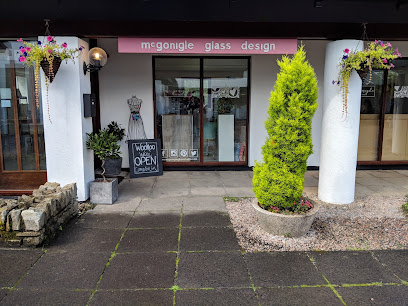
Get That Trend
Explore the latest women's fashion trends at Get That Trend, a premier shopping destination in County Donegal offering style and quality.
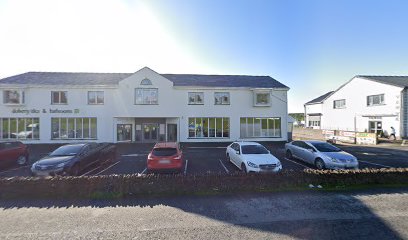
Verve Boutique
Explore Verve Boutique in Drumark, Co. Donegal, for the latest in women's fashion, unique styles, and a personalized shopping experience.
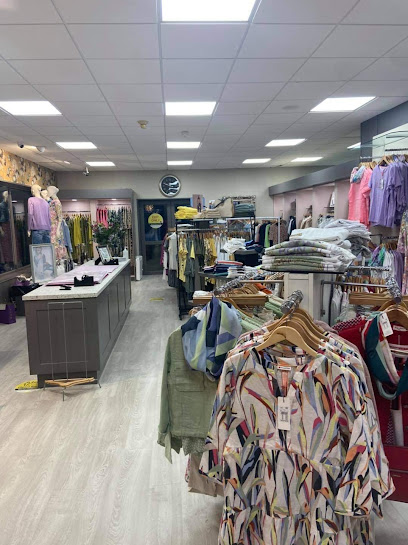
Forget Me Not
Explore the enchanting world of crafts at Forget Me Not, Donegal's premier destination for handmade treasures and local artistry.
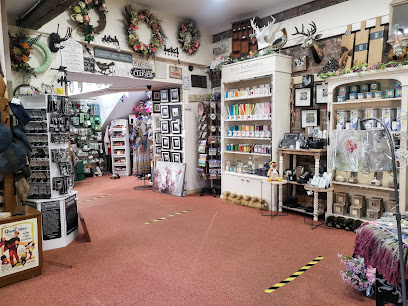
Floyd's MACE Dunkineely
Discover local flavors and essential goods at Floyd's MACE Dunkineely, the charming grocery store in the heart of County Donegal.
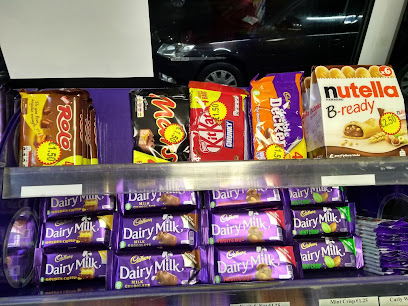
Fou Tees
Explore Fou Tees in Donegal for unique gifts, custom t-shirts, and colorful balloons, capturing the essence of your visit to this charming town.
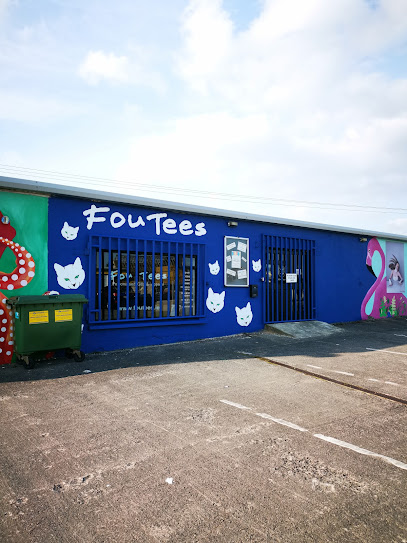
Triona
Explore Triona in Donegal for unique Irish gifts, clothing, and jewelry that capture the essence of local craftsmanship and culture.
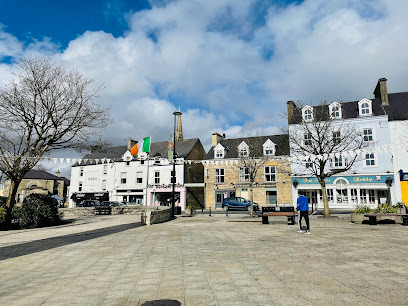
Hegarty's Centra
Experience the heart of Killybegs at Hegarty's Centra, your go-to supermarket for fresh produce and local delights in County Donegal.
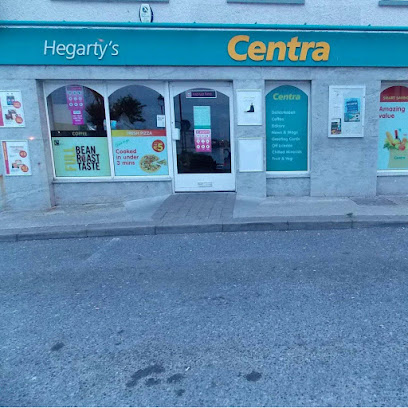
The Parlour Shop
Discover unique second-hand treasures at The Parlour Shop in Killybegs, Co. Donegal – a must-visit for vintage enthusiasts and decor lovers.
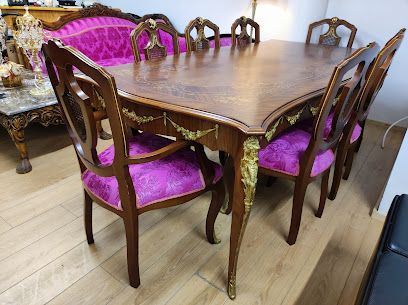
Tweed
Discover Tweed in Donegal, where traditional craftsmanship meets contemporary fashion in a unique clothing store experience.
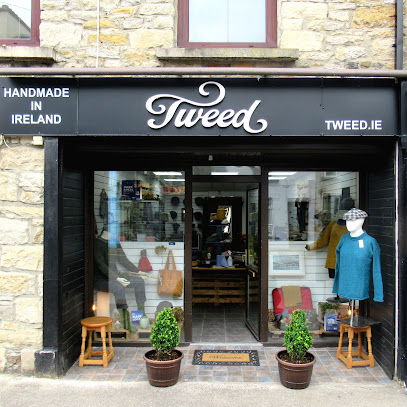
Hand Knitted Sweaters
Discover the artistry of hand-knitted fashion at Hand Knitted Sweaters in Kilcar, a unique shopping experience in the heart of Donegal.
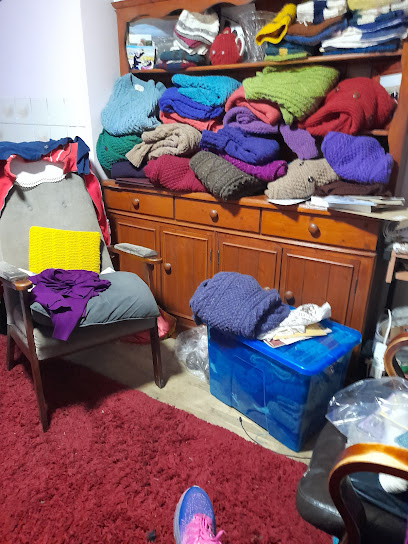
Finnegans Shop & Post Office
Discover the charm of Finnegans Shop & Post Office in Rossnowlagh, your go-to spot for local groceries, baked goods, and essential services.
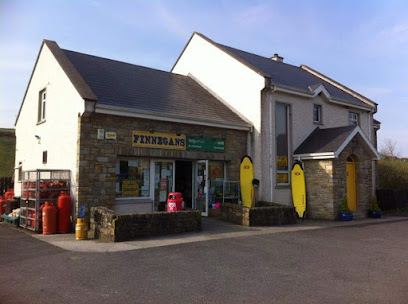
Stella Boutique
Discover ethical fashion at Stella Boutique in Donegal, where every piece tells a story of fair trade and sustainability.
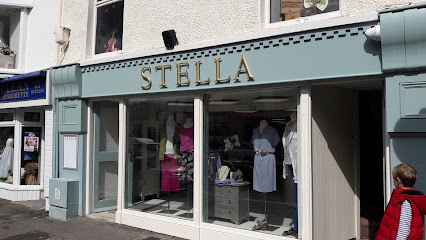
SweetNews Sweet shop, Fashion Accessories & Gift Shop
Explore SweetNews in Killybegs for unique gifts, fashion accessories, and delicious treats in a charming atmosphere.
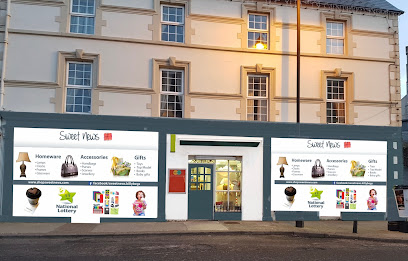
Essential bars & hidden hideouts
The Rusty Mackerel
Experience the heart of Donegal at The Rusty Mackerel, where great food and stunning coastal views create unforgettable moments.
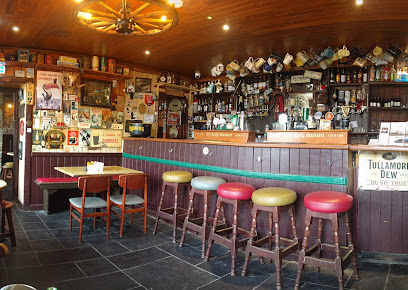
Olde Castle Seafood Bar
Experience the finest seafood dishes at Olde Castle Seafood Bar in Donegal Town, where local flavors meet vibrant atmosphere.
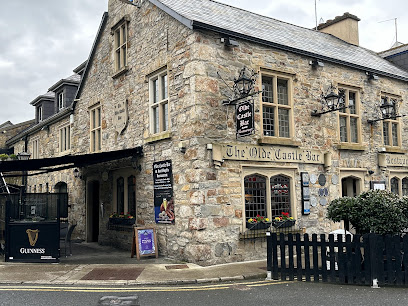
Biddy's O'Barnes
Discover the perfect blend of traditional Irish pub culture and gourmet dining at Biddy's O'Barnes in Co. Donegal.
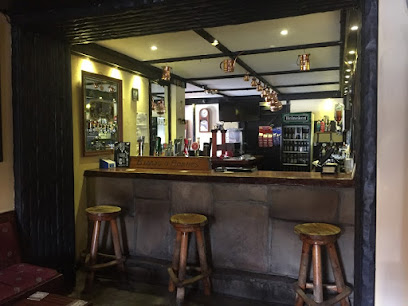
Smugglers Creek Inn
Experience the perfect blend of local charm, stunning views, and delicious cuisine at Smugglers Creek Inn in beautiful Donegal.
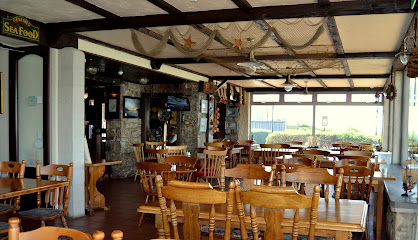
The Olde Glen Bar, Restaurant & Bia Box
Experience the warmth of Irish hospitality at The Olde Glen Bar, where delectable cuisine meets a cozy atmosphere in stunning Donegal.
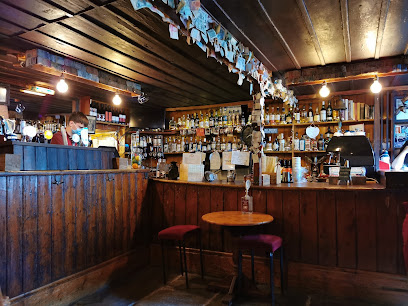
Beachcomber Bar
Experience the charm of Beachcomber Bar in Rathmullan, where local flavors and breathtaking seaside views create the perfect pub atmosphere.
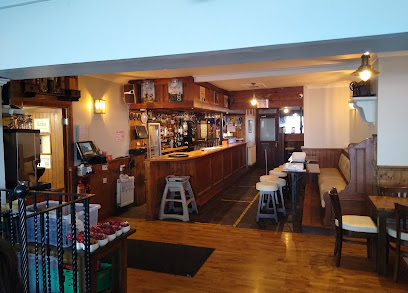
McCafferty's Bar, Donegal Town
Discover the heart of Donegal Town at McCafferty's Bar, where authentic Irish culture, live music, and a warm atmosphere await.
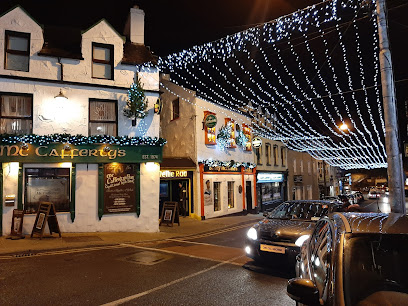
The Harbour Restaurant & Bar
Experience the best of Irish cuisine at The Harbour Restaurant & Bar in Donegal, where fresh ingredients and stunning views unite.
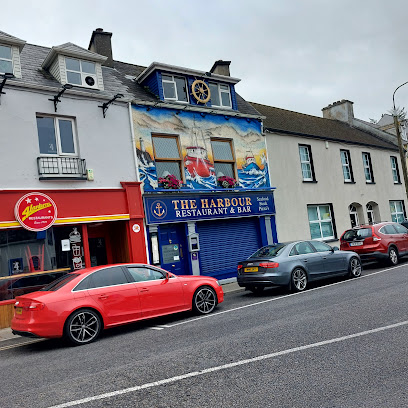
The Reel Inn
Experience the warmth of Irish hospitality at The Reel Inn, a cozy bar in Donegal offering a diverse drink menu and delicious bites.
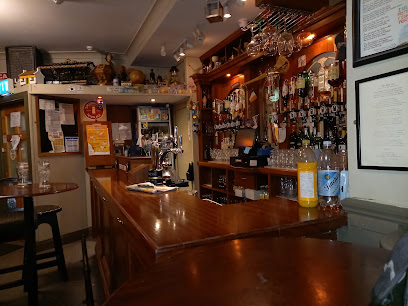
The Kicking Donkey & Georges Bar
Experience the vibrant atmosphere and live Irish music at The Kicking Donkey & Georges Bar in Bundoran, Co. Donegal.
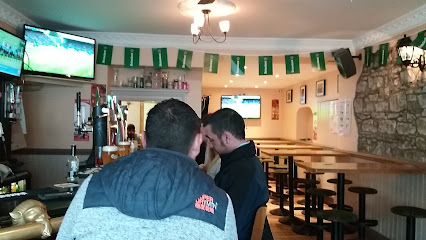
The Reveller Bar
Experience the vibrant atmosphere of The Reveller Bar in Donegal, where local brews, live music, and warm hospitality await you.
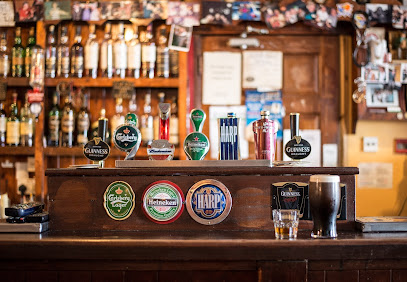
The Bird's Nest Bar
Experience the charm of The Bird's Nest Bar in Co. Donegal, where local flavors and warm hospitality await every visitor.
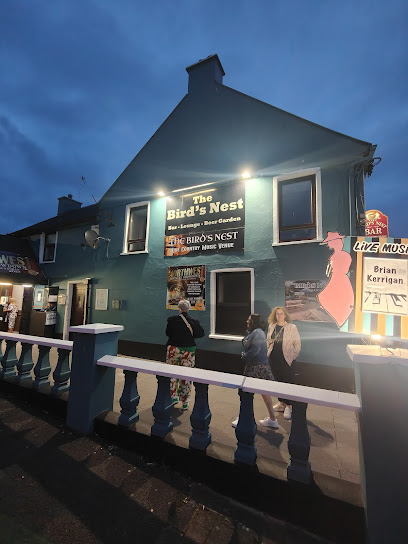
O'Donnells Bar & Restaurant Donegal
Discover the heart of Donegal at O'Donnells Bar & Restaurant, where delicious food meets live music in a vibrant atmosphere.
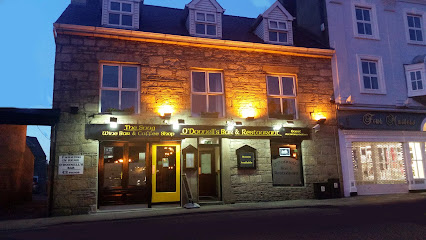
John Joe's Bar
Discover the vibrant spirit of John Joe's Bar in Kilcar, a lively venue for live music, local brews, and authentic Irish hospitality.
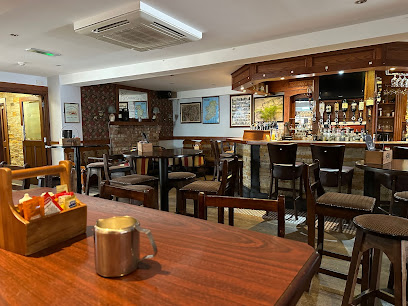
Local Phrases about Donegal Bay
-
- HelloDia dhuit
[dee-ah gwit] - GoodbyeSlán
[slawn] - YesTá
[taw] - NoNíl
[neel] - Please/You're welcomeLe do thoil
[leh duh hull] - Thank youGo raibh maith agat
[guh rev mah ag-at] - Excuse me/SorryMaith thú
[mah hoo] - How are you?Conas atá tú?
[kun-us ah-taw too] - Fine. And you?Tá mé go maith. Agus tú?
[taw may guh mah. ag-us too] - Do you speak English?An bhfuil Béarla agat?
[ahn will bayr-lah ag-at] - I don't understandNí thuigim
[nee hug-im]
- HelloDia dhuit
-
- I'd like to see the menu, pleaseBa mhaith liom an mianú
[bah wyh lum on me-an-oo] - I don't eat meatNí ithim feoil
[nee ih-him foh-il] - Cheers!Sláinte!
[slawn-cheh] - I would like to pay, pleaseBa mhaith liom íoc, le do thoil
[bah wyh lum eek, leh duh hull]
- I'd like to see the menu, pleaseBa mhaith liom an mianú
-
- Help!Cabhraigh!
[kow-ree] - Go away!Imigh uaim!
[ih-mee og-um] - Call the Police!Glan an Gharda!
[glahn ahn gahr-dah] - Call a doctor!Glan dochtúir!
[glahn duch-too-ir] - I'm lostTá mé caillte
[taw may kahl-cheh] - I'm illTáim tinn
[taw-im chin]
- Help!Cabhraigh!
-
- I'd like to buy...Ba mhaith liom ceannach...
[bah wyh lum keh-nukh] - I'm just lookingNíl mé ach ag breathnú
[neel may akh egg breh-noo] - How much is it?Cé mhéad atá air?
[kay vayd ah-taw air] - That's too expensiveTá sé ró-dhaor
[taw shay roh-yuhr] - Can you lower the price?An féidir leat an praghas a ísealú?
[ahn fay-dir lat on prah-gus ah ee-sha-loo]
- I'd like to buy...Ba mhaith liom ceannach...
-
- What time is it?Cén t-am é?
[kayn tahm ay] - It's one o'clockTá sé a haon
[taw shay ah hayn] - Half past (10)Leath uair tar éis a deich
[lah uir tar aysh ah deh] - MorningMaidin
[mah-din] - AfternoonTráthnóna
[traw-noh-nah] - EveningTráthnóna
[traw-noh-nah] - YesterdayInné
[in-ay] - TodayInniu
[in-yoo] - TomorrowAmárach
[ah-maw-rahk] - 1A haon
[ah hayn] - 2A dó
[ah doh] - 3A trí
[ah tree] - 4A ceathair
[ah kah-her] - 5A cúig
[ah koo-ig] - 6A sé
[ah shay] - 7A seacht
[ah shaht] - 8A hocht
[ah hukht] - 9A naoi
[ah nee] - 10A deich
[ah deh]
- What time is it?Cén t-am é?
-
- Where's a/the...?Cá bhfuil...?
[kah will] - What's the address?Cad é an seoladh?
[kahd ay ahn shol-ah] - Can you show me (on the map)?An bhfuil tú ábalta liom a thaispeáint (ar an léarscáil)?
[ahn will too aw-bal-tah lum ah hash-paynt (ahr on layr-skawl)] - When's the next (bus)?Cathain atá an chéad bus eile?
[kah-hin ah-taw ahn khayd bus el-eh] - A ticket (to ....)Ticéad (go dtí ....)
[tick-aid (guh dee)]
- Where's a/the...?Cá bhfuil...?
History of Donegal Bay
-
Donegal Bay has been inhabited since prehistoric times, with evidence of ancient settlements and megalithic structures scattered throughout the area. Archaeological finds suggest that early inhabitants engaged in fishing, farming, and trading. The presence of dolmens and ringforts highlights the importance of the region in ancient times.
-
During the early medieval period, Donegal Bay saw the rise of monastic communities. The most notable is the Abbey of Donegal, founded by the Franciscans in the 15th century. These monastic sites became centers of learning, spirituality, and culture, contributing significantly to the region's historical and cultural development.
-
The O'Donnell clan, one of the most powerful Gaelic families in Ireland, ruled over the area surrounding Donegal Bay for centuries. Their stronghold, Donegal Castle, still stands as a testament to their influence. The O'Donnells played a crucial role in Irish history, particularly during the Nine Years' War against English rule.
-
In 1588, several ships of the Spanish Armada sought refuge in the waters of Donegal Bay after being battered by storms. The Spanish sailors who survived the wrecks were either captured or integrated into local communities. The Armada's presence in Donegal Bay left a lasting impression on the local folklore and history.
-
The Great Famine of the 1840s had a devastating impact on the population of Donegal Bay. Many residents were forced to emigrate to escape starvation and poverty. The legacy of this period is evident in the numerous famine memorials and in the stories of those who emigrated to America and other parts of the world.
-
Donegal Bay has been a focal point for the revival of Irish culture and language. The Gaeltacht regions around the bay are strongholds of traditional Irish language, music, and dance. Cultural festivals and events celebrate the rich heritage of the area, attracting visitors from around the globe.
-
In recent years, Donegal Bay has become a popular destination for tourists seeking natural beauty and historical significance. Efforts to conserve the pristine environment and protect historical sites have been paramount. The Wild Atlantic Way, which passes through Donegal Bay, highlights the area's stunning landscapes and cultural treasures.
Donegal Bay Essentials
-
Donegal Bay is located in County Donegal, in the northwest of Ireland. The nearest international airports are Dublin Airport (approximately 225 kilometers away) and Belfast International Airport (approximately 165 kilometers away). From either airport, you can rent a car, take a bus, or hire a taxi to reach Donegal Bay. Bus Eireann operates regular services to Donegal Town, which is the gateway to the bay area. Alternatively, you can take a train to Sligo and then transfer to a bus for Donegal.
-
Once in Donegal Bay, getting around is relatively straightforward. Renting a car is highly recommended for the flexibility it offers, especially if you plan to explore the surrounding countryside. Public transportation options include local buses operated by Bus Eireann, which connect major towns and villages. Taxis are available but can be pricey for long distances. Bicycle rentals are also an option for those looking to explore the area at a more leisurely pace.
-
The official currency in Ireland is the Euro (EUR). Credit and debit cards are widely accepted in hotels, restaurants, and shops. However, it is advisable to carry some cash, especially when visiting smaller establishments or rural areas. ATMs are readily available in towns and larger villages. Contactless payment methods are increasingly popular and widely used.
-
Donegal Bay is generally a safe destination for tourists. However, it is always wise to take standard precautions. Avoid walking alone at night in isolated areas and keep an eye on your belongings in crowded places. There are no specific neighbourhoods with high crime rates targeting tourists, but it is best to stay vigilant and aware of your surroundings.
-
In case of emergency, dial 112 or 999 for immediate assistance. The local police station (Garda Síochána) and medical facilities are available in Donegal Town. It is recommended to have travel insurance that covers medical emergencies. For minor health issues, pharmacies in the area provide over-the-counter medications. Familiarize yourself with the location of the nearest hospital or medical center.
-
Fashion: Do dress in layers as the weather can be unpredictable. Avoid wearing overly casual attire in formal settings. Religion: Do respect local religious customs. When visiting churches, dress modestly and remain quiet. Public Transport: Do be courteous to fellow passengers and offer your seat to the elderly or those in need. Don’t play loud music or talk loudly. Greetings: Do greet people with a friendly 'hello' or 'hi,' and a handshake if appropriate. Eating & Drinking: Do try local dishes and beverages. Don’t forget to say 'please' and 'thank you,' as politeness is appreciated.
-
To experience Donegal Bay like a local, visit the traditional pubs and engage with the friendly locals. Take a scenic drive along the Wild Atlantic Way for breathtaking views. Explore less touristy villages such as Killybegs, Ireland's premier fishing port, and Ardara, known for its tweed and festivals. Don’t miss the opportunity to enjoy a traditional Irish music session in a local pub. For outdoor enthusiasts, hiking in the Bluestack Mountains or visiting the Slieve League Cliffs, some of the highest sea cliffs in Europe, is highly recommended.
Trending Landmarks in Donegal Bay
-
Donegal Castle
-
Fanad Head Lighthouse
-
Doagh Famine Village
-
Assaranca Waterfall (Eas a' Ranca)
-
Fairy Bridges
-
Glenveagh Castle
-
Glencolumbkille Folk Village
-
Oakfield Park
-
Glenevin Waterfall
-
Largy Viewpoint
-
Moville Shore Path Walk, Inishowen
-
Culdaff Beach
-
Sliabh Liag Cliff Experience & Visitor Centre
-
Donegal Bay Waterbus
-
Caves of Maghera
Nearby Cities to Donegal Bay
-
Things To Do in Derry
-
Things To Do in Westport
-
Things To Do in Athlone
-
Things To Do in Galway
-
Things To Do in Salthill
-
Things To Do in Belfast
-
Things To Do in Drogheda
-
Things To Do in Ennis
-
Things To Do in Dublin
-
Things To Do in Limerick
-
Things To Do in Bray
-
Things To Do in Kilkenny
-
Things To Do in Port Erin
-
Things To Do in Peel
-
Things To Do in Port St Mary













